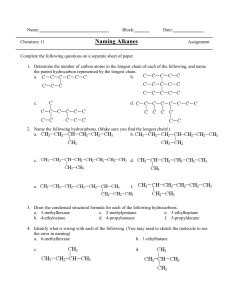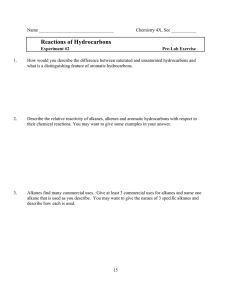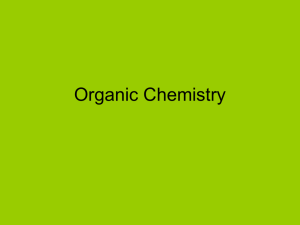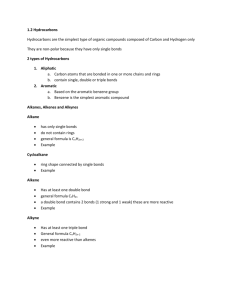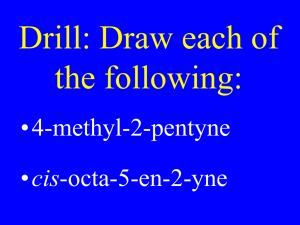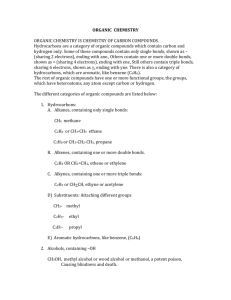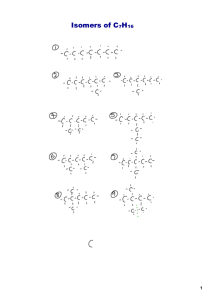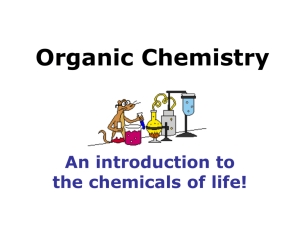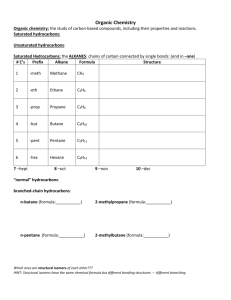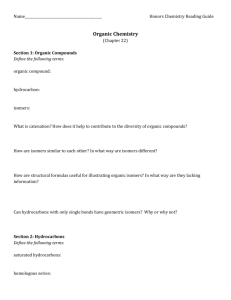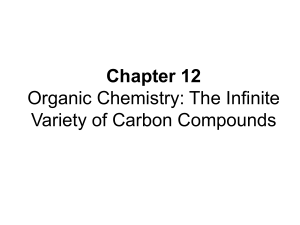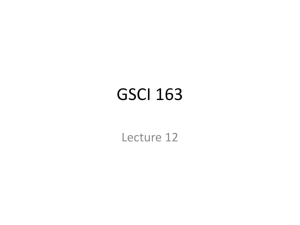Organic Chemistry: Hydrocarbons & Nomenclature
advertisement
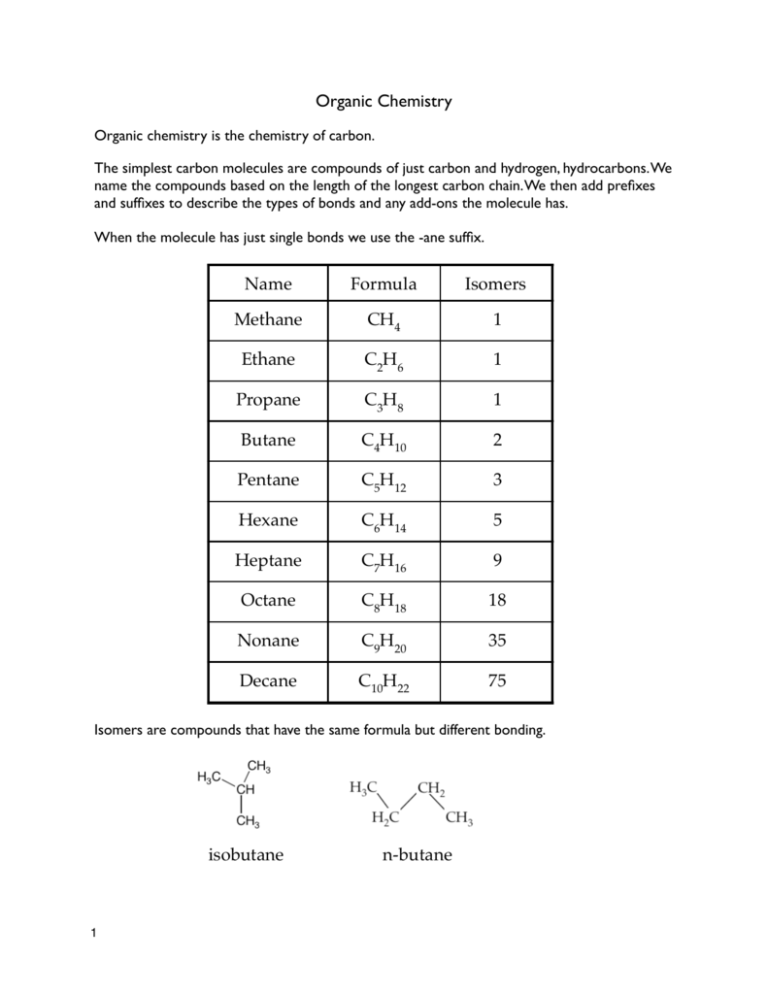
Organic Chemistry Organic chemistry is the chemistry of carbon. The simplest carbon molecules are compounds of just carbon and hydrogen, hydrocarbons. We name the compounds based on the length of the longest carbon chain. We then add prefixes and suffixes to describe the types of bonds and any add-ons the molecule has. When the molecule has just single bonds we use the -ane suffix. Name Formula Isomers Methane CH4 1 Ethane C2H6 1 Propane C3H8 1 Butane C4H10 2 Pentane C5H12 3 Hexane C6H14 5 Heptane C7H16 9 Octane C8H18 18 Nonane C9H20 35 Decane C10H22 75 Isomers are compounds that have the same formula but different bonding. isobutane 1 n-butane Naming Alkanes Hydrocarbons are always named based on the longest carbon chain. When an alkane is a substituent group they are named using the -yl ending instead of the -ane ending. So, -CH3 would be a methyl group. The substituent groups are named by numbering the carbons on the longest chain so that the first branching gets the lowest number possible. The substituents are listed alphabetically with out regard to the number prefixes that might be used. 3-methylhexane 1 6 2 5 3 4 4 3 5 2 6 1 Alkenes and Alkynes When a hydrocarbon has a double bond we replace the -ane ending with -ene. When the hydrocarbon has more than three carbon the position of the double bond must be specified with a number. 1-butene 2-butene Hydrocarbons with triple bonds are named basically the same, we replace the -ane ending with -yne. 2 Aromatic Hydrocarbons Cyclic hydrocarbons with delocalized bonds are called aromatic hydrocarbons the most common of these is benzene. Naming aromatic compounds is very similar to other hydrocarbons. 1,2-dibromobenzene 1,3-dibromobenzene 1,4-dibromobenzene ortho-dibromobenzene meta-dibromobenzene para-dibromobenzene 3
